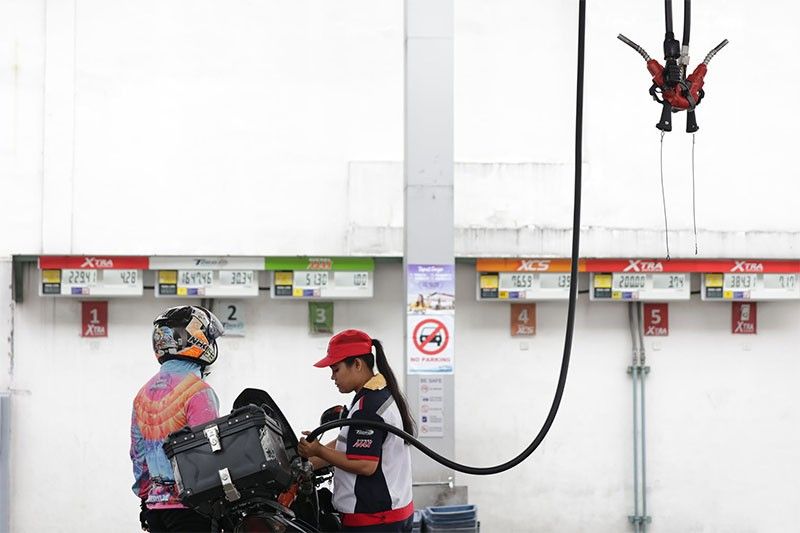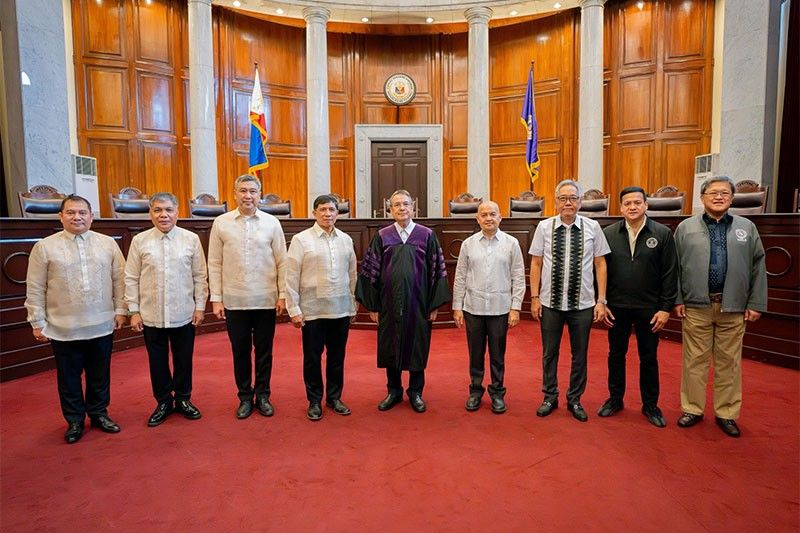
Upgrade to High-Speed Internet for only ₱1499/month!
Enjoy up to 100 Mbps fiber broadband, perfect for browsing, streaming, and gaming.
Visit Suniway.ph to learn
MANILA, Philippines — The Supreme Court has affirmed the graft conviction of former Pagsanjan, Laguna Mayor Emilio Ramon "ER" Ejercito, popularly known as Jeorge "ER" Ejercito Estregan, for illegally awarding an insurance contract to an unlicensed company without conducting the required public bidding.
In a 15-page decision promulgated on Feb. 5, 2025, the high court’s first division found Ejercito guilty of violating the Anti-Graft and Corrupt Practices Act.
Aside from Ejercito, Marilyn Bruel, the owner of First Rapids Care Ventures (FRCV), was also found guilty.
Both Ejercito and Bruel have been sentenced to up to eight years in prison and are permanently barred from holding public office.
The case
The case stemmed from a complaint filed by the United Boatmen Association of Pagsanjan, alleging that Ejercito and other local officials improperly awarded a contract to FRCV.
This contract was for FRCV to provide accident insurance for tourists and boatmen in the Pagsanjan Gorge Tourist Zone. According to the complaint, the FRCV lacked the necessary license from the Insurance Commission to provide such services.
The Ombudsman in 2016 then found probable cause against Ejercito and seven other accused and filed the information before the Sandiganbayan.
One of the accused, Crisostomo Villar, was acquitted by the anti-graft court, but Ejercito and the others were convicted.
All convicted accused filed a motion for reconsideration before the anti-graft court, which was denied.
This prompted the accused to file a petition before the Supreme Court.
The high court’s ruling
The Supreme Court affirmed the decision of Sandiganbayan finding Ejercito and Bruel guilty, while the other co-accused, Arlyn Lazaro-Torres, Terryl Talabong, Kalahi Rabago, Erwin Sacluti and Gener Dimaranan, were acquitted.
Ejercito defended his actions by claiming that FRCV was the only qualified service provider and therefore public bidding was unnecessary.
Bruel also argued that the contract was for "special services" and not insurance.
However, the high court rejected these arguments, saying that the contract was indeed for insurance and thus classified as "goods" under the Government Procurement Reform Act, which mandates public bidding.
The Supreme Court explained that the purpose of competitive bidding is to protect public interest by ensuring the best possible outcomes through open competition and preventing any appearance of favoritism or irregularities in government contracts.
“Competitive public bidding aims to protect the public interest by giving the public the best possible advantages through open competition and to avoid or preclude suspicion of favoritism and anomalies in the execution of public contracts,” the high court said.
The Supreme Court also pointed out that exceptions to the bidding requirement are limited to specific, rare circumstances, such as emergencies or repeated failed bidding attempts, neither of which applied in this case.
The high court also found that Ejercito bypassed the legally required bidding process and directly awarded the contract to FRCV through "negotiated procurement" without any valid justification.’
“There is thus no doubt that the accused violated procurement law, rules and regulations,” the high court’s ruling read.
The Supreme Court concluded that Ejercito knowingly provided FRCV with an unfair advantage, disregarding established legal procedures and ignoring clear warning signs.
“In this case, Estregan's manifest partiality and evident bad faith was indubitably shown when he entered a MOA with FRCV despite glaringly questionable circumstances such as FRCV being registered with the Department of Trade and Industry (DTI) only on March 19, 2008 and with the Bureau of Internal Revenue (BIR) only on September 17, 2008 just five days prior to its letter-offer-and its lack of a Certificate of Authority from the Insurance Commission,” its ruling read.

 3 months ago
19
3 months ago
19



